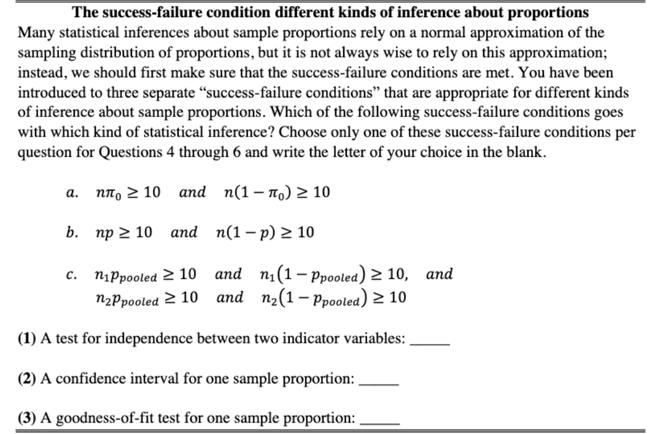Answered step by step
Verified Expert Solution
Question
1 Approved Answer
The success-failure condition different kinds of inference about proportions Many statistical inferences about sample proportions rely on a normal approximation of the sampling distribution

The success-failure condition different kinds of inference about proportions Many statistical inferences about sample proportions rely on a normal approximation of the sampling distribution of proportions, but it is not always wise to rely on this approximation; instead, we should first make sure that the success-failure conditions are met. You have been introduced to three separate "success-failure conditions" that are appropriate for different kinds of inference about sample proportions. Which of the following success-failure conditions goes with which kind of statistical inference? Choose only one of these success-failure conditions per question for Questions 4 through 6 and write the letter of your choice in the blank. a. n 10 and n(1-0) 10 b. np 10 and n(1-p) 10 c. nippooled 10 and n(1-Ppooled) 10, and nPpooled 10 and n(1-Ppooled) 10 (1) A test for independence between two indicator variables: (2) A confidence interval for one sample proportion: (3) A goodness-of-fit test for one sample proportion:
Step by Step Solution
★★★★★
3.50 Rating (160 Votes )
There are 3 Steps involved in it
Step: 1
The successfailure condition is a requirement that must be met in order to use the normal approximat...
Get Instant Access to Expert-Tailored Solutions
See step-by-step solutions with expert insights and AI powered tools for academic success
Step: 2

Step: 3

Ace Your Homework with AI
Get the answers you need in no time with our AI-driven, step-by-step assistance
Get Started


